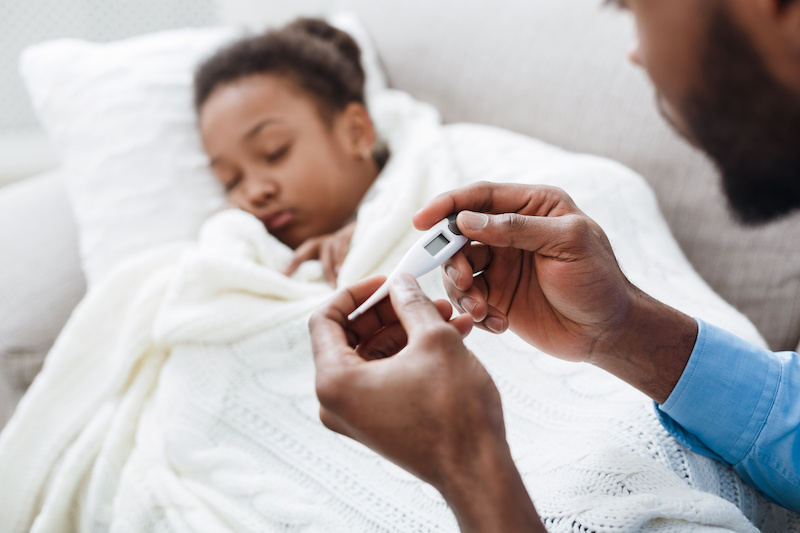Five things to know about the flu

It’s flu season again. In fact, about half of every year, from September to March, is “flu season.” Despite the fact that we spend half of our lives in flu season, there are lots of misconceptions about this common and sometimes deadly virus. Here are five important facts about the flu that not everyone knows:
1. You can get the flu shot anytime during flu season.
We obviously want people to get it early, like in September (or earlier, if it’s available earlier), so they are protected throughout the season. But any protection is better than none, so getting a flu shot as late as March (or later when the flu lingers, which it can do) is just fine.
2. Even if the flu shot isn’t fully protective, you should still get it.
Every year, experts try to predict which strains of the flu are going to be the biggest problem in the upcoming season, and design the flu shot to protect against those (that’s why you need it every year). Sometimes they get it right and sometimes they don’t.
But besides the fact that we can’t really know how protective it is until the end of the season, it’s better to be possibly protected than not protected at all — and if you get sick, the flu shot may help make the illness less severe.
3. Healthy people can get very sick from the flu.
It’s true that the people who are most likely to run into problems with the flu are the very young, the very old and those with chronic health problems, but people who have never had a health problem can get very sick, or even die, from the flu or a complication of the flu. That’s why we want everyone to get a flu shot and to take it seriously if they get sick.
4. There are medications against flu.
The flu is caused by a virus, and we don’t have great medicines for treating viruses. There are some medications that can shorten the illness and possibly make it less severe, but:
- those medicines have side effects
- they don’t do very much
- they work best if you start them within 48 hours of getting sick — and it often takes longer for people to figure out they’ve got the flu
We tend to use these medications most in people who are in more danger with the flu, either when they get sick or when they have been around someone with the flu, for prevention. We also use them in people who get very sick with the flu, even if it’s more than 48 hours.
If you or your child is in one of the high-risk groups, you should call your doctor as soon as you suspect the flu or have been near someone with flu.
5. If you get the flu, stay home.
If you aren’t in one of those risk groups (very young, very old or with a chronic health problem), the very best thing you can do is stay home, take care of yourself and keep your germs to yourself. With plenty of rest and fluids, most people weather the flu just fine.
You should call your doctor’s office or go to an emergency room if you or your child has:
- trouble breathing
- a seizure
- any severe pain (in babies, crying or irritability that you cannot console)
- extreme sleepiness
- trouble drinking or keeping fluids down
- a stiff neck
- a high fever (102 or higher) that doesn’t come down with acetaminophen or ibuprofen
- a rash that looks like a bruise (little dots or bigger areas)
- been sick for more than five days and aren’t getting better
You can get all sorts of information about flu, and things to do at home, at flu.gov.
Get answers to other health and parenting questions.
Related Posts :
-

Study highlights the severity of acute necrotizing encephalopathy in kids with the flu
For most children, influenza (flu) usually means unpleasant symptoms like a fever, sore throat, and achy muscles. But for a ...
-

Model enables study of age-specific responses to COVID mRNA vaccines in a dish
mRNA vaccines clearly saved lives during the COVID-19 pandemic, but several studies suggest that older people had a somewhat reduced ...
-

Will people accept a fentanyl vaccine? Interviews draw thoughtful responses
In 2022, more than 100,000 people died from opioid overdoses in the U.S., according to the National Center for Health Statistics. ...
-

Creating the next generation of mRNA vaccines
During the COVID-19 pandemic, mRNA vaccines came to the rescue, developed in record time and saving lives worldwide. Researchers in ...





